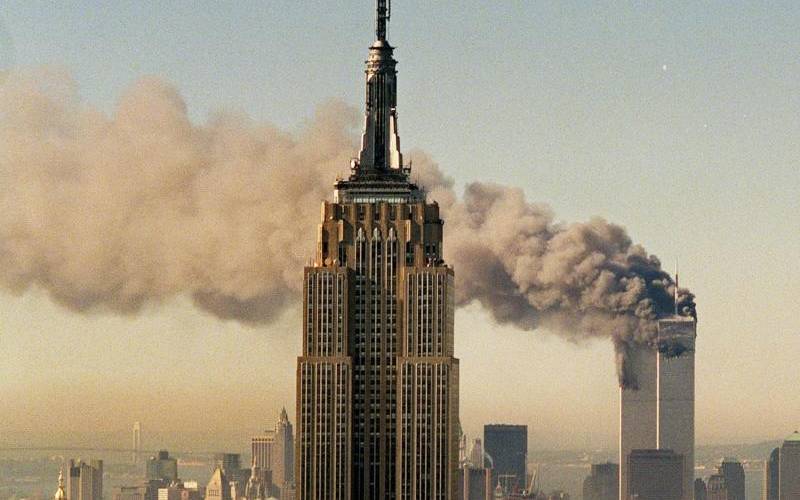×
The Standard e-Paper
Fearless, Trusted News

A file photo of the twin towers of the World Trade Center burn behind the Empire State Building in New York.
Twenty years ago, at 8.46am on September 11, 2001, an American Airlines Boeing 767 plane was flown into the north tower of the World Trade Centre. Just 17 minutes later, a United Airlines plane flew into the south tower.